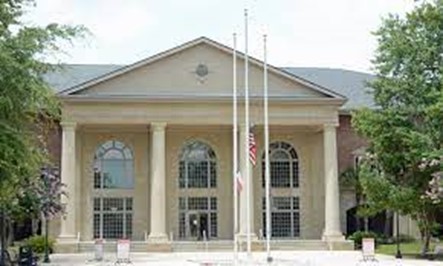Steve Howard of Camden County, Georgia is the local county administrator and an executive government leader. Steve Howard’s main focus in his position is to assist the Board of County Commissioners and listen to the needs and concerns of residents throughout the county, creating action plans to implement local suggestions and organize goals for future county projects. In the following article, Steve Howard of Camden County discusses ways the local government can be more effective in leadership, encouraging participation and community partnerships, while presenting precise visions for the county’s future.
Local government officials must balance the needs of their constituents while maintaining a high standard of ethical behavior and accountability to adapt or respond to challenges within the community. Although it can be challenging, effective leadership skills can help to guide local governments in their decision-making and interactions with the public says Steve Howard of Camden County, Georgia.
By adapting to create a clear and concise vision for the community that’s realistic and achievable, developing a strong and effective communication plan to reach all members of the community, and encouraging public participation within the decision-making process, local governments can better serve their communities and effectively produce results. Steve Howard of Camden County, Georgia explores how governments can adapt to implement these measures and discusses how it benefits everyone in the local community.
Encouraging Constituents to Participate in Local Government Helps Democracy
A strong democracy is based on the informed participation of its citizens. Unfortunately, many people do not take the time to learn about the issues that affect their community or participate in the democratic process. As a result, Steve Howard of Camden County, Georgia says that local government officials are often left to make decisions without input from those they represent.
One way to encourage participation is by providing access to information and opportunities to get involved. For example, local governments can post agendas and minutes online, host public forums, and provide opportunities for citizens to serve on boards and commissions. By making it easier for people to get involved, Steve Howard of Camden County, Georgia says that local governments can ensure that more voices are heard and that decisions are made in the best interest of the community.
Additionally, by encouraging the public to participate in local government, leaders can be more responsive to the needs of their constituents. For example, if a community is experiencing a rise in crime, the local government can allocate resources to address the problem. Or, if there is a need for more affordable housing, the local government can work with developers to create new housing options.
Local Governments Should Create a Clear Vision for the Community
In order to be effective, local governments must create and present a clear and concise vision for the community that’s both realistic and actionable. Steve Howard of Camden County, Georgia explains that this can be done by developing a strategic plan that outlines the goals and objectives of the government while also taking into consideration input from the community. These plans should then be reviewed and updated on a regular basis.
By having a clear vision for the community, local governments can make better decisions about how to allocate resources and invest in the future. If the community’s goal is to become more economically prosperous, the local government can invest in job training programs and infrastructure projects according to Steve Howard of Camden County, Georgia.
Developing a Strong Communication Plan Helps Local Governments Connect with the Community

Last but not least, Steve Howard of Camden County, Georgia says that local governments must have a strong communication plan in place to reach all members of the community, regardless of their age or background. The plan should include a variety of methods for disseminating information—both digitally and physically—such as social media, newsletters, and public meetings. This way, constituents of all age groups can access information about upcoming events.
Additionally, the government should make sure that information is accessible to everyone, including those with limited English proficiency or those with disabilities. Steve Howard of Camden County, Georgia explains that if officials are unable to produce this content on their own, they should adapt by outsourcing to a service provider who can translate the material or produce disability-accessible content.
Steve Howard of Camden County, Georgia says that by having a strong communication plan, local governments can keep the public informed about the decisions being made and the services being provided. Additionally, by soliciting feedback from the community, local governments can be more responsive to the needs of their constituents.
Clear Communication and Partnership Builds Trust Between Local Governments and the Citizenry
When local governments work together with their constituents, it helps to build trust between the two parties explains Steve Howard of Camden County, Georgia. When the public feels like their voices are being heard and that their government is responsive to their needs, they are more likely to participate in the democratic process and support their local government.
Ultimately, by adapting to be more effective in leadership, local governments can better serve their communities and produce results that benefit everyone. In time, Steve Howard of Camden County, Georgia says that the local government becomes a leading force within the community rather than a disconnected and often out-of-touch entity that passes ordinances for a disinterested populace.
The Bottom Line
Effective leadership within local government should serve the entire local populace. Yet, to effectively guide constituents, local governments must actively work to encourage participation, provide a vision for the future of the community, and communicate clearly and honestly with everyone involved in the decision-making process.








